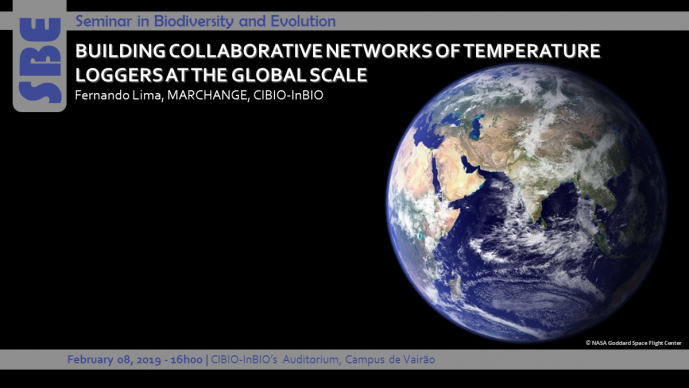BUILDING COLLABORATIVE NETWORKS OF TEMPERATURE LOGGERS AT THE GLOBAL SCALE


It is becoming increasingly evident that satellite data, although invaluable in many aspects, are insufficient to characterize the thermal complexity of many ecosystems. This mismatch occurs not only in regard to air temperatures, where fine-scale topography and vegetation cover play determinant roles, but also in relation to soil and water temperatures, where significant differences are often found between satellite-derived surface and in-situ measurements. Such discrepancies are not uniformly distributed in space or time, hence severely limiting our ability to accurately characterize fine-scale thermal environments over large geographical scales. Nonetheless, most ecologists continue to rely solely on satellite records for large-scale studies because the deployment of large networks of temperature loggers has been, so far, impractical. Recent advances in logger development have, however, significantly reduced the complexity of implementing such networks. Loggers now cost less, are more robust, record data for longer periods, and are easier to deploy and collect data from. Drawing on these advances and on our experience in building continental-wide logger networks in Europe, Americas and Asia, we show how it is possible to build collaborative networks with global coverage. Options for automated data transmission and analysis, which are key to reducing workflow complexity, are discussed, as well as modes of data ownership that facilitate the collaborative nature of these projects and greatly reduce the cost per unit of data collected. The implementation of these networks results in unique datasets of standardized in-situ temperature measurements complementary to satellite observations, with direct implications for climate change research.
Fernando P. Lima is a researcher at CIBIO-InBIO, specialist in intertidal biogeography, studying the processes and mechanisms driving species distributions. Most of his work focus on the study of the mechanistic links between climate, thermal stress, physiology and macro-ecological processes. His research brings together a variety of disciplines, including climatology, biogeography, electronics, experimental ecology, physiology and modelling. He is a co-founder of WE-LOG, a collaborative global network of coastal temperature sensors.
Image credits: NASA Goddard Space Flight Center